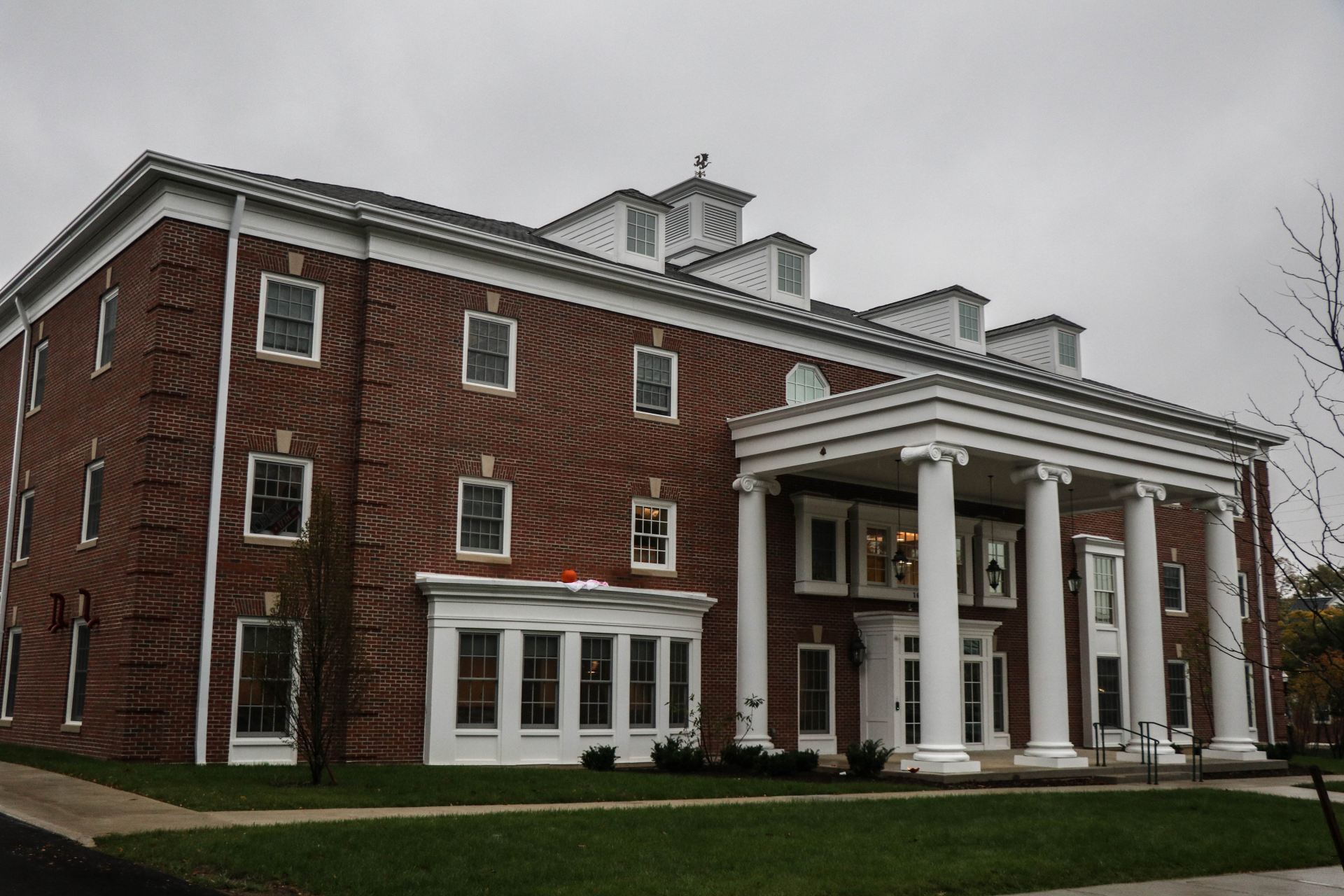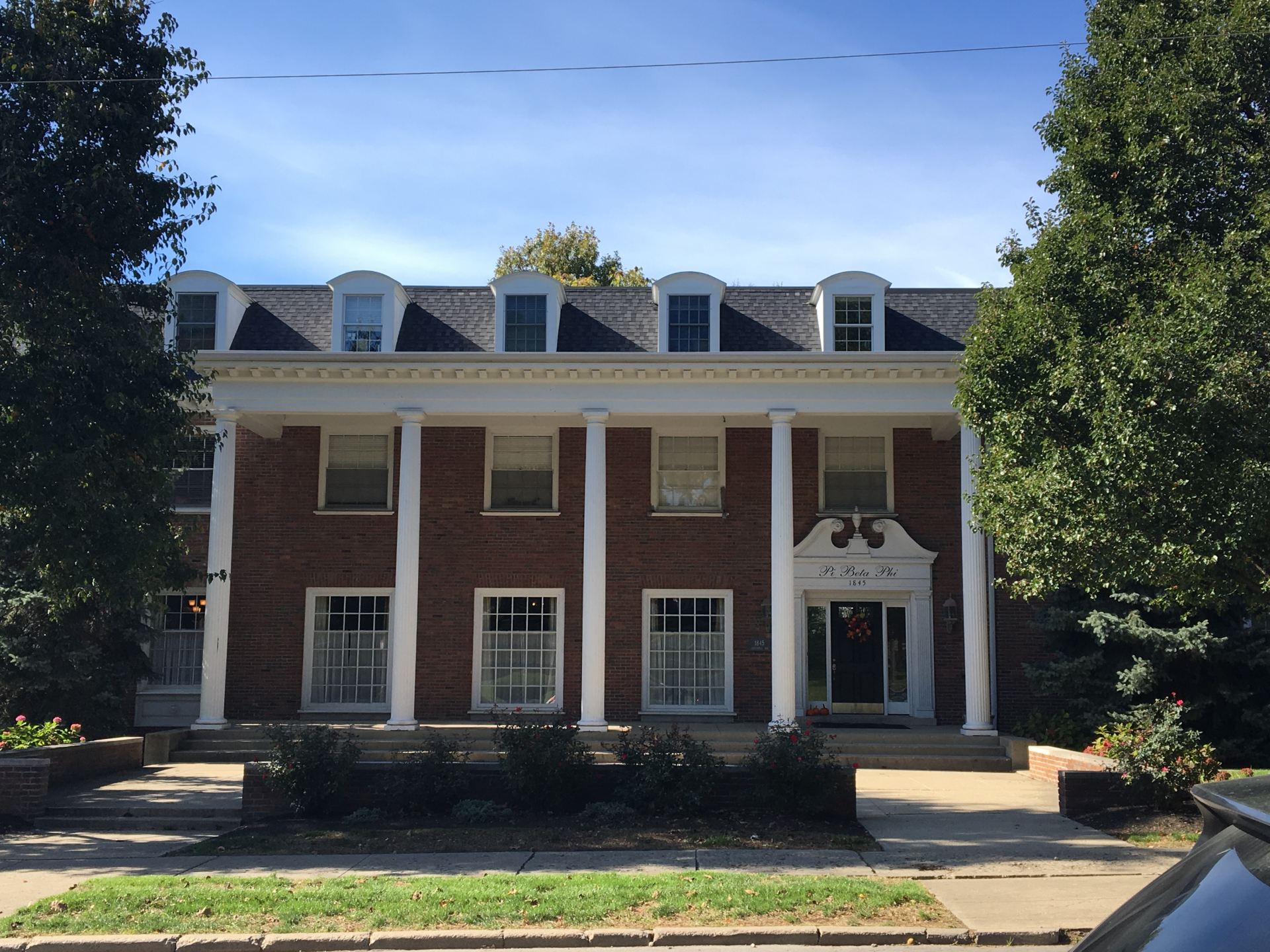
The Ohio State Beta Theta Pi fraternity is the newest Greek housing facility on campus. Credit: Jack Westerheide | Photo Editor
If you had the ability to live with 30 to 60 of your friends, enjoy two cooked meals a day and live in a mansion only about 10 minutes from your 8 a.m. class, would you take it?
Students have access to this lifestyle if they choose to live in a Greek house off-campus.
“Everything is more convenient. It’s so much safer. We even have special security systems to keep us protected, not to mention there are always people around so you are never lonely,” said Tricia Gore, a fourth-year in health science. “It gives you the unique experience of bonding with all the different pledge classes that you wouldn’t get unless you lived in. I would definitely recommend it to anyone.”
Gore is the current president of Pi Beta Phi sorority and has lived in off-campus housing on Chittenden Avenue last year.
The sorority house can fit 60 members comfortably, including two house cooks and a house mom who lives in the building, as well.
Each Greek chapter uses a different system to maintain a well-kept house, but almost all of them have housing corporations filled with alumni that donate money and volunteer time to maintain the property.

The Ohio State Pi Beta Phi sorority can house up to 60 residents per year. Credit: Zach Grader | Lantern Reporter
Every chapter has a different price when it comes to living in the house. If a chapter is unable to fill housing requirements, a GPA-based placement system, pledge class and executive position often determines who will live in chapter houses.
Like dorms, fraternity and sorority houses also have rules and guidelines to follow.
“There’s a lot of little things that take adjusting to,” Gore said. “Guests must always be accompanied by an active member, we don’t allow significant others to sleep over, and weird, funny stuff too, like not having candles in the house.”
There are plenty of other reasons that incentivize Greek students to live in their chapter house, one being the cost of living.
“I think there’s an economic side of living in Greek housing, especially the second year of schooling which is something that people don’t realize. The cost of living is typically cheaper than a dorm would be, and in a lot of cases apartments or housing,” said Drew Cooper, a fourth-year in public affairs and the president of the Interfraternity Council.
Cooper said fraternities and sororities that meet the university housing standard are able to let second-year students live in the chapter houses.
As a member of Phi Kappa Tau, Cooper’s chapter house permits 30 different second-year students to live in the house.
“It’s an economically smart and sound decision that most parents don’t know about, and if people did know about it, they might be more ambitious about joining Greek life” Cooper said.


